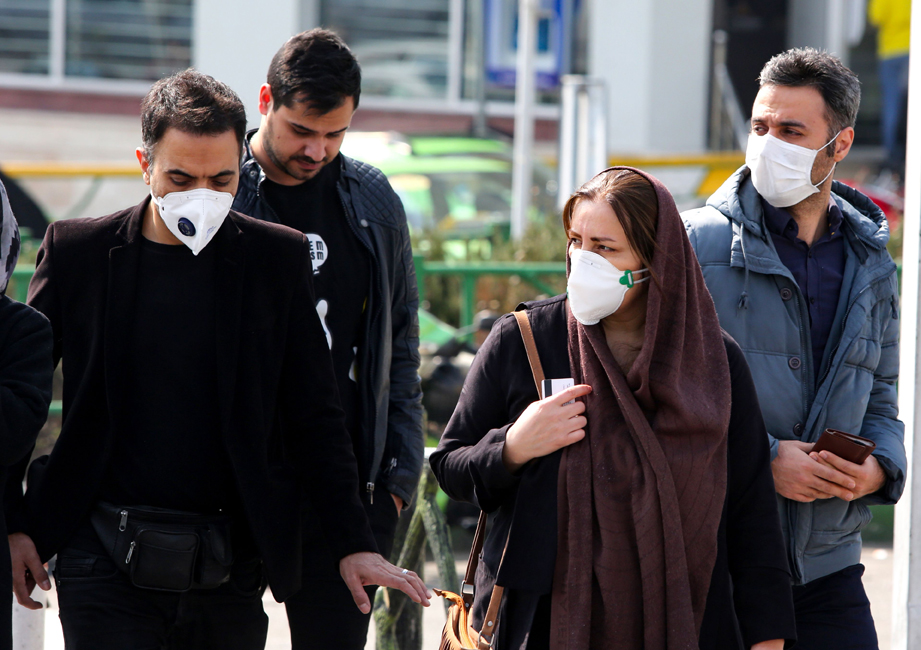Saudi-led coalition tightens the screws on Houthi smuggling routes
AL-MUKALLA: The Saudi-led coalition and Yemen’s internationally recognized government have intensified security measures around main sea and land entry posts in Yemen to prevent Iran from smuggling arms to Houthis in Yemen.
Over the last couple of months, hundreds of Yemeni coast guard soldiers have been deployed off the Yemeni coasts on the Red Sea and the Arabian Sea, as the coalition tightens security checks at the Shihen border crossing in the western province of Mahra.
Dozens of army and security checkpoints have also stepped up the inspection of vehicles that cross into Houthi-controlled territories in northern Yemen. Local army officers and experts say those measures have yielded considerable results, as several arms shipments have been intercepted before reaching the Houthis.
Yemen alert
In the Red Sea, local officers said Yemeni troops had consolidated their presence on the island of Perim near Bab Al-Mandab Strait, and off the coasts of the provinces of Hodeida and Taiz.
The coast guard initiated a hotline for receiving alerts from local fishermen, who were urged to report any suspected movements of boats in the Red Sea.
“Local fishermen are now helping us monitor the sea. They alert us about any ship or a boat suspected of carrying weapons to Houthis,” a coast guard officer in the Red Sea Khokha district told Arab News on condition of anonymity because he was not authorized to brief reporters, adding that coast guard forces had increased sea patrols around Zuqar and Perim Islands with the same aim.
The two islands are located at the southern entrance of the Red Sea, where arms shipments from Iran are thought to pass through.
The same officer said that three ships carrying a large amount of explosive materials heading to Houthis had been intercepted at sea in the last three months.
Last week, the commander of the Yemeni coast guard in the western coast announced seizing a ship carrying 20 tons of urea fertilizer. The material can be used for making bombs.
The investigation with the three Yemeni fishermen captured on the ship showed that they received cargo from unidentified smugglers near the Somali port city of Zeila and were asked to give it to the Houthis for several thousand Saudi riyals.
“A big smuggling network is involved,” the officer who learned about the investigation said.
“We are confident that the Iranian smugglers do not directly hand over shipments to the Yemenis. All directions come from big smugglers in Yemen. We have learnt that Iranian smugglers pretending to be fishermen are active near Somalia.”
FASTFACTS
• The coast guard initiated a hotline for receiving alerts from local fishermen.
• Three ships carrying a large amount of explosive materials heading to Houthis ‘had been intercepted at sea in the last three months.’
• Yemen’s coast guard authority crumbled in late 2014 when Houthis seized control of Sanaa and expanded across the country, triggering a civil war.
In the southeastern province of Hadramout, dozens of soldiers have been deployed across a vast and porous coastline at suspected entry points for arms and drugs.
Maj. Gen. Faraj Salmeen Al-Bahsani, the governor of Hadramout, said the deployment was the last phase of a plan aimed at securing the province’s coasts.
“The coalition has asked us to secure areas between Shiher and Mahra to prevent smuggling,” he told Arab News. “We have discovered several vehicles carrying weapons to the Houthis.”
Starting from scratch
Yemen’s coast guard authority crumbled in late 2014 when Houthis seized control of Sanaa and expanded across the country, triggering a civil war.
When the Saudi-led coalition intervened militarily in support of Yemen’s government, monitoring the country’s sea waters was left to the coalition’s navy. At the same time, the coalition had to rebuild the coast guard by training troops inside and outside Yemen, building facilities and equipping the forces with boats that would enable them to take on the mission.
The governor of Hadramout said that the coast guard branch in the large province was now working without much help as the coalition had furnished them with the equipment needed for the missions.
“We have stood on our feet thanks to great help from the coalition. They provided us with radar and boats,” Al-Bahsani added.
Smuggling focal points
Yemeni experts believed that large shipments of Iranian weapons to the Houthis went through a few seaports that were under rebel control in the western province of Hodeida.
“It is true that the Houthis might bring in light devices and weapons on land through government-controlled areas. But rockets, drones and heavy weapons come through Hodeida,” Yasser Al Yafae, a political analyst, told Arab News.
Hodeida city, which hosts Yemen’s biggest seaport, was the target of a major military offensive that managed to liberate several seaports on the Red Sea and reach the city’s outskirts.
The offensive was canceled in late 2018 under the UN-brokered Stockholm Agreement that obliged the coalition-backed Yemeni forces to stop hostilities in exchange for a Houthi withdrawal from Hodeida’s seaport. Two years later, the Houthis have neither pulled out of the seaports nor allowed inspection on ships docked.
“The inauspicious Stockholm Agreement allowed Houthis to use Hodeida seaports to smuggle, weapons, weapons and drones,” Yahya Abu Hatem, a Yemeni military expert, told Al-Arabiya Al-Hadath on Friday.

Yemen thanks UAE for evacuating students from China Saudi Aramco attack drone components linked to Iran and Houthis in Yemen





